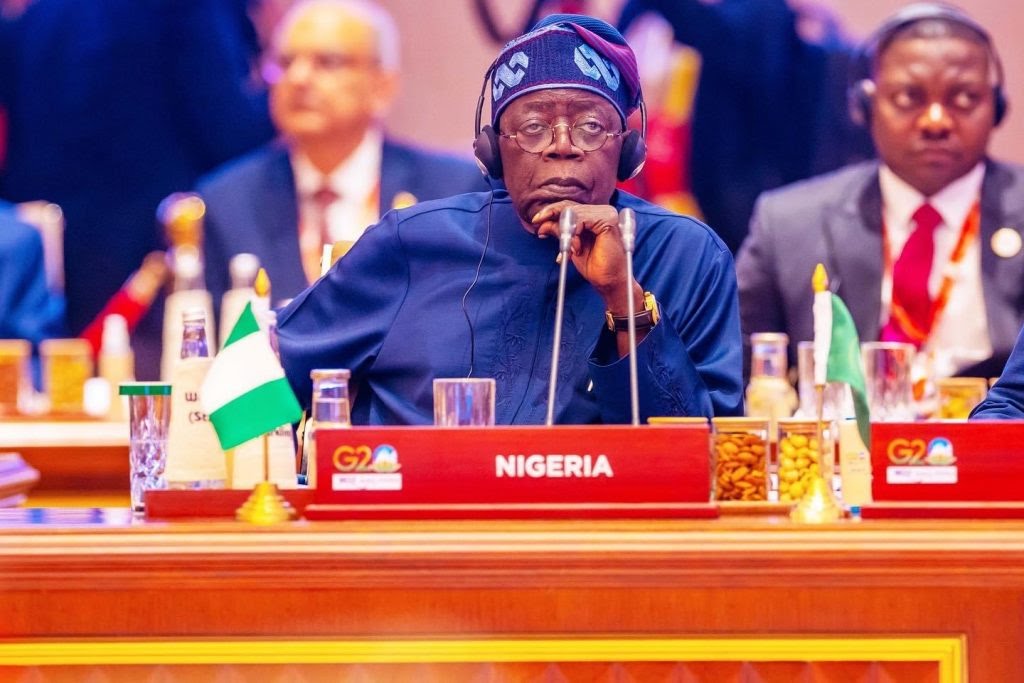At the G-20 Summit, President Bola Tinubu’s agenda took a notable shift as he pushed forward with his economic diplomacy initiatives, engaging with two significant counterparts: Germany and South Korea.
During these meetings, the President convened with the heads of state from three nations recognized as pivotal partners in his drive for economic development diplomacy, with a particular focus on fostering local investment and wealth generation.

According to a statement by presidential spokesman, Ajuri Ngelale, for the Leader of Africa’s largest economy, a meeting with the chief executive officer of Europe’s largest economy, Germany, presented a unique opportunity to expand ties of prosperity for the people of Nigeria, but with a pragmatic approach toward ensuring the effective execution of agreements struck.
“It is not, for us, only a matter of designing the financial architecture for an expanded economic partnership. It is also about the practicality of aligning the perspectives of your large-scale manufacturers, such as Volkswagen and others, with the reality of the new incentives my government is putting in place for them to come and prosper across multiple value chains and sectors inside of our country,” he quoted the president as imploring.
Apparently intrigued by the specific economic focus of Tinubu’s proposal, German Chancellor, Olaf Scholz, responded by acknowledging the mutually-beneficial nature of an escalation in the scale of economic ties with Africa’s largest economy.
“Thank you for this important discussion, Mr. President. I can appreciate this opportunity to advance our economic relations. Your market is unique and our companies have history in Nigeria. We acknowledge the business-friendly reforms you have put in place. I am happy to inform you of my desire to visit you in Nigeria in October, which will allow us to carry forward these initiatives,” the German leader confided.
Following President Tinubu’s acceptance of the German Chancellor’s request to visit, the president proceeded to sit down with the leader of Asia’s fourth largest economy, South Korea, during which South Korean President Yoon Suk Yeol commended the president’s regional leadership in upholding democratic tenets and norms.
“I wish to commend your strong leadership, following the peaceful transfer of power to you from your predecessor and we see a stable country in West Africa that is growing in stature,” he said.
Tinubu responded by swiftly steering the discussion toward his economic focus, as he immediately advanced proposals for an enhanced South Korean presence in Nigeria’s local manufacturing sector.
“We will leave nothing hanging. We will finalise what we agree to and we will execute. We will work point by point with you to secure rapidly implementable MoUs across sectors of partnership that will involve the active presence of your biggest firms, not just in terms of Nigerian consumption, but in local Nigerian production, from telecommunications to technology, and oil & gas,” the Nigerian leader affirmed.
The South Korean President responded in agreement, noting specifically that Nigeria’s education, technology and energy sectors are of utmost interest to South Korean investors and that he will mobilize his business community to take advantage of new Nigerian incentives for local industry.
Offering an invitation to visit Nigeria, President Tinubu would conclude formal discussions at the G-20 with the Asian giant and host nation, which had invited Nigeria to the G-20 Summit, as he met with Indian Prime Minister, Narendra Modi.
“There are many lessons our nation can learn from the rapid progress that India has made under your leadership. We see fantastic opportunities between our nations across sectors, such as agricultural development, but specifically, there is more we can do to advance ICT innovation and the emergence of Blue-Chip FinTech growth in Africa. Nigeria has the local players who can drive it from the front,” the Nigerian leader confidently asserted.
The hosting head of state responded in the affirmative to the economic partnership proposal, even as he expressed gratitude for the Nigerian leader’s invitation to visit.
“Our teams must now stay close in touch to detail our priority areas of upscaled cooperation with respect to agriculture, defense industries capacity building, and even FinTech growth. I see your commitment. We believe there are immense prospects for Nigeria in the UPI (Unified Payments Interface) and we will ensure that we come together and make progress on these fronts very rapidly,” the Indian leader concluded.
During the G-20 sideline meetings, President Tinubu also had substantive, informal exchanges of views with U.S. President Joe R. Biden; European Commission President, Ursula von der Leyen; and World Bank President, Ajay Banga, amongst many others.







